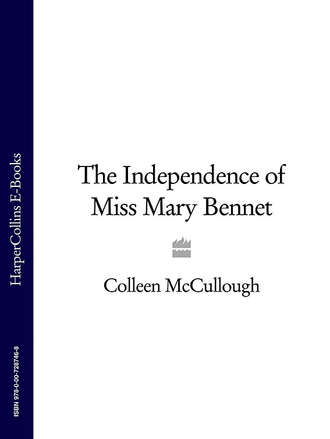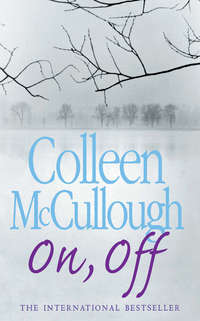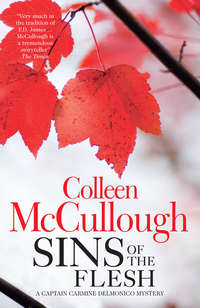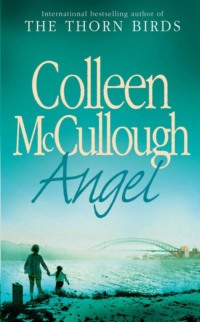
Полная версия
The Independence of Miss Mary Bennet
Wriggled brows and winks flew from face to face; it was no mean thing for a thirty-eight-year-old female to charm such an eligible bachelor as Mr Wilde. Who seemed not to care that he was her junior by a good six or seven years.
“Clever of him,” said Miss Botolph, whose sixty years meant she experienced no pangs of jealousy. “One hears that she has an adequate income, and if he snares her, it will elevate his station. She is Darcy of Pemberley’s sister-in-law.”
“I could wish she dressed better,” said Lady Appleby, a keen reader of ladies’ fashion magazines.
“And I, that she did not come out with those truly peculiar remarks,” from Mrs Markham. “I do believe she was seen in deep conversation with a gypsy.”
The object of these observations was seated on a sofa with Mr Wilde in attendance, her plain black gown so old that it had a greenish hue, and her hair scraped into a bun without a single curl to frame her face.
“What did you learn from the gypsy?” Mr Wilde was asking.
“Fascinating, sir! It seems they believe themselves the descendants of the Egyptian pharaohs, and are doomed to wander until some paradise or prophet arrives. What he was really trying to do was to separate me from my sixpences, but he did not succeed. His eyes hungered for gold or silver, not food. I went away convinced that his tribe, at least, is neither impoverished nor discontented. He said they liked their life. I did learn that they move on when they have fouled their camp site with rotten food and bodily wastes. A lesson some of our own hedgerow people should learn.”
“You say they like their life. But you do not like yours.”
“That will change in May,” said Mary, nibbling a macaroon. “This is very good. I must ask Mrs McLeod for her cook’s recipe.”
“That’s a relief!” cried Mr Wilde, forgetting that it was not polite for new acquaintances to contract words.
“A relief. In what way?”
“It says that there will be an end to your travels. That one day you will command the services of your own cook.”
“I do that now.”
“But do not entertain. Therefore, no macaroons.”
“I am reproved.”
“Miss Bennet, I would never dream of reproving you!” His light brown eyes grew brighter, gazed into hers ardently, and his whirling mind quite forgot that they were in Mrs McLeod’s drawing room with ten other people. “On the contrary, I ask for nothing more of life than to spend it at your side.” He took the plunge. “Marry me!”
Horrified, she wriggled down the sofa away from him in a movement so convulsive that all eyes fixed on them; all ears had been flapping far longer.
“Pray do not say it!”
“I have already said it,” he pointed out. “Your answer?”
“No, a thousand times no!”
“Then let us speak of other things.” He took the empty plate from her nerveless fingers and smiled at her charmingly. “I don’t accept my congé, you understand. My offer remains open.”
“Do not hope, Mr Wilde. I am obdurate.” Oh, how vexatious! Why had she not foreseen this inappropriate declaration? How had she encouraged him?
“Will you be at Miss Appleby’s wedding?” he asked.
And that, concluded the satisfied onlookers, is that — for the time being, at any rate. Sooner or later she would accept his offer.
“Though if she plays too hard to catch,” said Miss Botolph, “she may find her fisherman has waded far upstream.”
“Do you know what I think, Delphinia?” asked Mrs Markham. “I think she does not give tuppence for matrimony.”
“From which I deduce that her situation is easy and her way of life settled,” Miss Botolph answered. “It was certainly so for me after my mama died. There are worse fates than a comfortable competence and a maiden existence.” She snorted. “Husbands can prove more of a sorrow than a blessing.”
An observation that the married ladies chose to ignore.
Argus put down his pen and viewed his latest effort with a slightly cynical eye. Its subject was actually rather silly, he thought, but comfortably off English folk, particularly those who lived in cities, were incredibly sentimental. Not the most vivid, emotive prose could move them to pity the lot of a chimney sweep, but if one substituted an animal for the human being — ah, that was quite a different matter! Many a tear would be shed when this letter appeared in the Westminster Chronicle! Pit ponies, no less. Permanently blind from a life spent underground, their poor shaggy hides furrowed with whip marks …
It amused him to do this sort of thing occasionally, for Argus was not what he seemed to his readers, who in their fantasies pictured him starving in a garret, worn to bones by the sheer force of his revolutionary ideals. Ladies of Miss Mary Bennet’s kind might dream of him as a fellow crusader against England’s ills, but in truth his epistolary zeal was fired by his desire to make life uncomfortable for certain gentlemen of the Lords and Commons. Every Argusine letter caused questions to be raised in both Houses, provoked interminable speeches, obliged Lord This and Mr That to dodge a few rotten eggs on that perilous trip between the portals of Parliament and the cabins of their carriages. In actual fact he knew as well as did the most conservative of Tories that nothing would improve conditions for the poor. No, it was not that which drove him; what did, Argus had decided, was a spirit of mischief.
Closing his library door behind him, he sallied into the spacious hall of his house in Grosvenor Square and held out a hand for his gloves, hat and cane while his butler draped a fur-collared cape about his broad shoulders.
“Tell Stubbs not to wait up,” he said, and ventured out into the freezing March night wearing his true guise; Argus existed only in his study. His walk was very short; one side of the square saw him reach his destination.
“My dear Angus,” said Fitzwilliam Darcy, shaking him warmly by the hand. “Do come into the drawing room. I have a new whisky for you — it takes a Scot to deliver a verdict on a Scotch whisky.”
“Och, I’ll give my verdict happily, Fitz, but your man knows his Highland malts better than I do.” Divested of cloak, cane, hat and gloves, Mr Angus Sinclair, secretly known as Argus, accompanied his host across the vast, echoing foyer of Darcy House. “Going to try again, eh?” he asked.
“Would I succeed if I did try?”
“No. That is the best part about being a Scot. I don’t need your influence, either at Court or in the City, let alone the Houses of Parliament. My wee weekly journal is but a hobby — the bawbees come from Glasgow coal and iron, as you well know. I derive much pleasure from being a thorn in the Tory paw, stout English lion that he is. You should travel north of the Border, Fitz.”
“I can tolerate your weekly journal, Angus. It’s Argus who is the damnable nuisance,” said Fitz, leading his guest into the small drawing room, blazing with crimson and gilt.
No doubt he would have continued in that vein, except that his ravishing wife was coming forward with a brilliant smile; she and Mr Sinclair liked each other. “Angus!”
“Each time I see you, Elizabeth, your beauty amazes me,” he said, kissing her hand.
“Fitz is making a bore of himself again about Argus?”
“Inevitably,” he said, heart sinking a little at her use of “bore”. Too tactless.
“Who is he?”
“In this incarnation, I know not. His letters come in the post. But in his original, mythical incarnation, he was a huge monster with many eyes. Which, I am sure, is why the anonymous fellow chose his pen name. The eyes of Argus see everywhere.”
“You must know who he is,” said Fitz.
“No, I do not.”
“Oh, Fitz, do leave Angus alone!” Elizabeth said jokingly.
“Am I making a bore of myself?” Fitz asked, a slight tinge of acid in his voice.
“Yes, my love, you are.”
“Point taken. Try the whisky, Angus,” said Fitz with a tight smile, holding out a glass.
Oh, dear, Angus thought, swallowing a potion he detested. Elizabeth is going to embark upon yet another of her poke-gentle-fun-at-Fitz essays, and he, hating it, will poker up stiffer than any iron implement ever forged to tame a fire. Why can she not see that her touch isn’t light enough? Especially given its object, thinner-skinned by far than he pretends.
“Do not say you like it, Angus!” she said with a laugh.
“But I do. Very smooth,” Angus lied valiantly.
A reply that mollified Fitz, but did not raise him in his hostess’s esteem; she had been hoping for support.
It was a private dinner; no other guests were expected, so the three of them sat at one end of the small dining table in the small dining room, there to consume a five-course meal to which none of them did justice.
“I publish Argus’s epistles, Fitz,” Angus said as the joints were removed and the syllabubs came in, “because I am so tired of this waste.” His rather crabbed hand swept the air above the table. “It is de riguer to serve me a gargantuan dinner, though I do not need it, and have eaten but a wee bit of it. Nor has either of you made greater inroads. All of us would have been content with a loaf of bread, some butter, some jam, some cheese and a winter apple. Your staff and all their relatives wax fat on your leavings — so, probably, do the ravens in the square gardens.”
Even knowing Fitz’s detestation of excessive loudness, Elizabeth could not help her burst of laughter. “Do you know, Angus, you and my sister Mary would get along together famously? That was exactly the kind of remark sets people’s backs up, but you care as little for our feelings as she would.”
“Whose wife is she?”
“Nobody’s. Mary is unmarried.”
“A spinster enamoured of Argus!” Fitz snapped.
Startled, Elizabeth’s eyes flew to his face. “How do you know that?” she asked. “I certainly do not.”
She had taken care to say it lightly, almost jokingly, but he would not look at her, and his face had gone very impassive. “I know it from Mary, of course.”
“Does she live in London?” Angus asked, shrewd blue eyes taking note of the sudden tension between them.
“No, in Hertford,” said Elizabeth, rising. “I will leave you to your port and cheroots, but do not, I beg you, linger over them. There will be coffee in the drawing room.”
“You’re lucky in your wife, Fitz,” Angus said, accepting a port. “The most beautiful, vital creature.”
Fitz smiled. “Yes, she is. However, there are other ladies equally entrancing. Why not espouse one yourself? What are you, forty? And unmarried. London’s most eligible bachelor, they say.”
“I beg to differ about the ladies. Elizabeth is unique.” Angus puffed at his slender cigar. “Is the spinster sister in her mould? If she is, I might try my luck there. But I doubt it, else she’d not be a spinster.”
“She was called upon to look after their mother.” Fitz grimaced. “Mary Bennet is a silly woman, forever quoting someone else’s noble Christian thoughts. Though at her last prayers years ago, she has found a new god to worship — Argus.” Darcy leaned both elbows on the table and linked his hands together; a habit of his to make other men think him relaxed, unworried. “Which leads me back to that vexed subject. It will not do, Angus, to keep on publishing this fellow’s pathetic crotchets.”
“If they were in truth pathetic, Fitz, you would not be half so perturbed. It’s not London eating at you, is it? London has always been a stew, and always will be a stew. No, you fear some revolution in the North — just how far do your interests go?”
“I don’t dabble in things beneath the notice of a Darcy!”
Angus roared with laughter, unoffended. “Lord, what a snob you are!”
“I would rather say I am a gentleman.”
“Aye, an occupation all of its own.” Angus leaned back in his chair, the hundred candles of an overhead chandelier setting his silver-gilt hair afire. The creases in his lean cheeks deepened when he smiled; they made him look impish. Which was how he felt, more intrigued with Fitzwilliam Darcy tonight than ever he had been. There were undercurrents he had not suspected — was that perhaps because Elizabeth was on a rare visit to the south? Most of his acquaintance with her had taken place at Pemberley during the house parties Fitz enjoyed having; she was, for all her beauty, not fond of the fleshpots of London society. A Court reception had brought her, and he counted himself fortunate that Fitz’s curious fixation upon Argus had produced things like an intimate dinner for three.
“It is no good,” he said, tossing back the last of his port. “Argus will have his forum for debate as long as I own the Westminster Chronicle — and you do not have sufficient money to buy me out. That would take the funds of a Croesus.”
“What a pleasant dinner,” Elizabeth said to her husband after their lone guest had departed. She commenced to climb the left-hand fork of the stairs above a splendid landing halfway up, Fitz by her side, helping her with her train.
“Yes it was. Though frustrating. I cannot seem to get it through Angus’s head that it is Argus and his like will bring us down. Ever since the American colonists started prating about their democratic ideals and the French started cutting off the heads of their betters, the lower classes have been rumbling. Even here in England.”
“A nation of shopkeepers, Bonaparte called us.”
“Bonaparte has failed. Sir Rupert Lavenham was telling me that his grand army is lost in the Russian snows. Hundreds of thousands of French soldiers frozen to death. And he has left them to their fate — can you believe that, Elizabeth? The man is an upstart, to have so little honour.”
“No honour at all,” she said dutifully. “By the way, Fitz, when did Mary tell you she was enamoured of Argus?”
“When I saw her in the library the morning we left. We — er — had a little falling out.”
They had reached her door; she stopped, her hand on its lever. “Why don’t you tell me about these things?”
“They are not your affair.”
“Yes, they are, when they involve my sister! What kind of falling out? Is that why she is living in Hertford? Did you make her feel she is not welcome at Pemberley?”
His dislike of being criticised made him answer sharply. “As a matter of fact, she absolutely refused to come to Pemberley! Or even to have a companion! It is the height of impropriety to live unchaperoned! And in Hertford, under the eyes of the people who have known her for years! I have washed my hands of her, frittering away her jointure on some quest put into her head by the letters of that fool, Argus!”
“Not a very generous jointure at that,” she countered, eyes flashing. “As I know for a fact that brother Charles contributed a full half of it, Mary has cost you less per year than you spend on stabling your carefully matched curricle horses! And I do not mean the bays plus the greys, I mean one team only! Two hundred and fifty pounds a year! You pay your valet that much, and your horse master more! When it comes to yourself, Fitz, you spend. But not on my poor — literally as well as metaphorically — sister!”
“I am not made of money,” he said stiffly. “Mary is your sister, not mine.”
“If you are not made of money, why do you spend it on fripperies like emeralds? I have no lust for jewels, but Mary needs more security than you have given her. Sell these emeralds and give the money to Mary. After seventeen years, she will have no more than nine and a half thousand pounds all told. If she chooses to live on her own, she can afford no conveyance, or do more than rent. Do you expect her to pay for the lady’s companion? Obviously! You are shabby!”
To have his conduct called shabby roused him to a rare anger; his lips drew back to bare his teeth. “I can take no notice of you, Elizabeth, because you speak in ignorance. Your idiotic sister has withdrawn her money from the four-percents, thus will have no income. Had I dowered her better, she would simply have more money to waste. Your sister, madam, is crazed.”
Gasping, Elizabeth fought for control; if she lost it, he would dismiss her rage as worth less than it was. “Oh, Fitz, why have you no compassion?” she cried. “Mary is the most harmless creature ever born! What can it matter if she — if she goes off in some peculiar way? If she refuses to be chaperoned? It was your determination to be rid of our mother that made Mary whatever she has become. And how could you predict what she would do, with Mama dead? You predicted nothing, simply assumed that she would go on being what she had been as a girl, and cheated her of an old age comfortable enough to live as you made sure our mother would. Why did you do that for our mother, then? Because untrammelled she was too dangerous — she might turn up at some important political reception and make you a laughing-stock with her silliness, her loud and thoughtless remarks. Now you visit Mama’s conduct upon poor Mary’s head! It is unforgivable!”
“I see that I was right not to tell you what transpired.”
“Not to tell me was unconscionable bad form!”
“Good night,” he said, bowing.
And off down the shadowed hall he strode, his figure as straight and well-proportioned as it had been twenty years ago.
“And don’t bother to write me one of your self-excusing and self-pitying letters!” she shouted after him. “I will burn it unread!”
Trembling, she entered her suite of rooms, profoundly glad that she had told Hoskins not to wait up. How dared he! Oh, how dared he!
They never quarrelled; he was too high in the instep, she too desirous of peace at any price. Tonight had been the first time they had exchanged bitter words in years. Perhaps, she thought, teeth chattering, we would be happier if we did quarrel. Yet even as angry as he had been tonight, he would not demean himself beyond what he deemed the conduct of a gentleman. No shouting, though she had shouted; no hands bunched into fists, though hers had been. His façade was unbreakable, for all that it had nearly broken her. Did his marriage satisfy his ideas of marriage? On her side, who could have dreamed the nightmare marriage would be?
What she harkened back to in her memories was the period of her engagement. Oh, the way he had looked at her then! His cold eyes lit from within, his hand finding any excuse to touch hers, his kisses soft on her lips, the conviction he gave her that she was more precious to him than all of Pemberley. They would always exist in a haze of perfect bliss: or so she had believed.
A belief shattered on her wedding night, a humiliation she endured only because so had God ordained procreation. Had Jane felt the same? She had no idea, could not ask. These intimacies of the bed chamber were too private for confidences, even with a most beloved sister.
Breathless with the anticipation of hours spent tenderly kissing and fondling, she had found instead an animal act of teeth and nails, hurtful hands, grunts and sweat; he had torn her nightgown away to pinch and bite her breasts, held her down with one hand while the other poked, pried, fumbled at the core of her. And the act itself was degrading, unloving — so horrible!
The next day he had apologised, explaining that he had waited too long for her, could not help himself, so eager was he to make her his. A shamefaced Fitz, but not, she realised, on her behalf. It was his own loss of dignity concerned him. A man had needs, he had said, but in time she would understand. Well, she never had. That first encounter set the pattern of the following nine years; even the thought that he might come to her in the night was enough to make her feel sick. But after the fourth girl in a row, his visits stopped. Poor Charlie would have to assume the burden of a position his very nature found repugnant, and her girls — such dear, sweet souls! — were as afraid of their father as they were of Ned Skinner.
The emeralds would not part company at the back of her neck. Elizabeth tore at them, heedless of how she pulled out tendrils of hair by the root. Oh, wretched things! More prized than the welfare of a sister. There. Free at last. But if only she were free! Did Mary realise that no husband meant at least a modicum of independence? To Elizabeth, dependence was galling.
Perhaps, she thought, crawling into the vast confines of her bed, I never loved Fitz enough. Or else there was not enough Lydia in me to respond to him the way a Lydia would. For I have grown sufficiently to realise that not all women are created the same: that some, like Lydia, actually welcome the grunts, the sweat, the stickiness; while some, like me, loathe them. Why can there not be a middle path? I have so much love to give, but it is not the kind of love Fitz wants. During our engagement I thought it was, but once I was his at law, I became a possession. The principal ornament of Pemberley. I wonder who his mistress is? No one in London knows, otherwise Lady Jersey or Caroline Lamb would have tattled it. She must be from a lower situation, grateful for the crumbs he throws her. Oh, Fitz, Fitz!
She cried herself to sleep.
Mr Angus Sinclair walked home to spend another hour in his library, but not in writing incendiary prose under the nom de plume of Argus. Angus — Argus. What a difference one wee letter made! He plucked a fat folder of papers from under a number of others on his desk, and settled to studying its contents afresh. It was made up of the reports of several of his agents on the activities of men he had christened the “nabobs of the North” — the ultimate owners of factories, foundries, workshops, mills and mines in Yorkshire and Lancashire.
Prominent among them was Mr Charles Bingley of Bingley Hall, Cheshire. Boon companion of Fitzwilliam Darcy. Yet the more Angus thought about it, the more curious that friendship became.
What did the colossal snob and the captain of trade and industry have in common? On the surface, a friendship that should not exist. His enquiries had revealed that they had met at Cambridge, and had been grafted to each other ever since. A youthful thing like an inappropriate crush on one side and a lofty condescension on the other? A wee Socratic fling, bums up? No, definitely not! Bingley and Darcy were nothing more nor less than firm friends. What they had in common must be less obvious … Bingley’s grandfather had been a Liverpool dock worker; it was his father had carved out an empire of chimneys spouting dense black smoke into the Manchester air. While Darcy’s grandfather had contemptuously refused a dukedom because, so rumour had it, he could not be the Duke of Darcy. Shires only for dukes.
Something binds that pair together, thought Angus, and I am positive it rejoices under the title of Trade and Industry.
“Yes, Angus,” said Mr Sinclair aloud, “the answer must be the only logical one — that the illustrious Fitzwilliam Darcy is Charles Bingley’s silent partner. Fifty thousand acres of Derbyshire peaks, moors and forests must yield Fitz ten thousand a year, but he also has many fertile acres of Warwickshire, Staffordshire, Cheshire and Shropshire. Why then is he said to have an income of a mere ten thousand a year? It must surely be twice that from the land alone. What other smokier, machine-driven activities contribute to how many thousands more?” He grunted. “Och, man, you’re tired and not thinking properly!”
The situation appealed to him enormously because, sensible Scot that he was, he failed utterly to understand why any man should be ashamed of dirtying his hands. Trade and industry bring rewards enough to transform the grandson of a Liverpool docker into a gentleman. What is wrong with having no ancestors? How Roman that is! New Men versus the Old Nobility, and never the twain shall meet. Except in Bingley and Darcy. Though would that twain meet if Bingley had a desire to be socially prominent in certain London circles? He did not, never had. A man of the North, he kept a London residence only because friendship with Fitz made it necessary.








